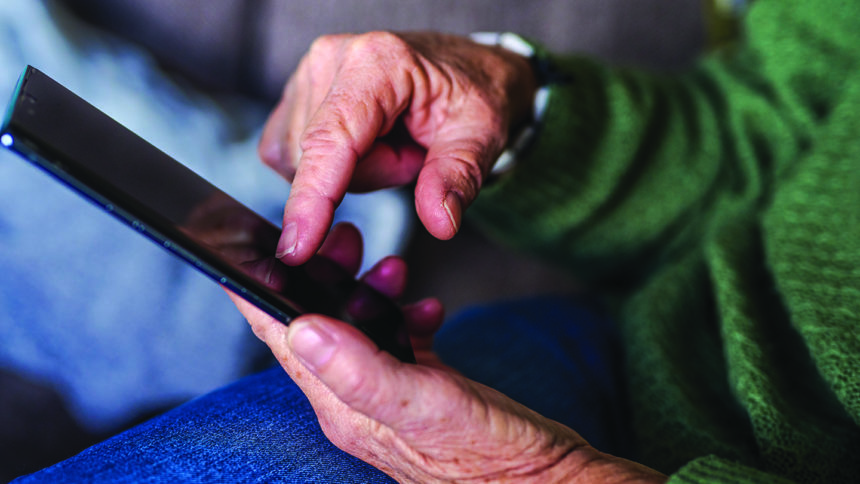
A virtual screening tool is helping detect skin cancer among nursing home residents, according to a pilot study conducted by researchers at Stanford University.
The pilot came about after investigators discovered that, as a result of fears over contracting COVID-19, in-person visits to Stanford’s dermatology clinics by older adults had declined by 37% in 2020, compared to 2019, and that the number of skin cancer diagnoses among this population decreased by 23% during the same time period.
In an effort to help older patients get the care they needed, the dermatology team turned to the SkinIO app, which allows patients and clinicians to capture high-quality photos of lesions without going into a clinic. The mobile app delivers the images via a secure portal to a dermatologist to review.
The pilot tested the app’s effectiveness with residents of an LTC facility in the San Francisco area, employing guided, in-residence skin scanning and outlier lesion identification. Three skin cancers were identified among 27 participating residents; 11 were scheduled for follow-up appointments and four started treatment at their facilities.
Some of the skin cancers were lesions that the patient had not previously noticed. Without the app’s full body images, they could have been missed, said study co-author Kavita Sarin, MD, an associate professor of dermatology at Stanford.
Results published in Skin Health and Disease suggest that teledermatology programs such as this one may help combat some barriers to care for older adults, particularly those who are immobile or whose health is compromised.
“In some cases, skilled nursing facilities have to send patients to the clinic using an ambulance, which can be time consuming and costly,” Sarin said. “If we could send out staff to take pictures of these patients, that could be incredibly helpful to these patients and a great application of this system.”
From the October 2022 Issue of McKnight's Long-Term Care News




